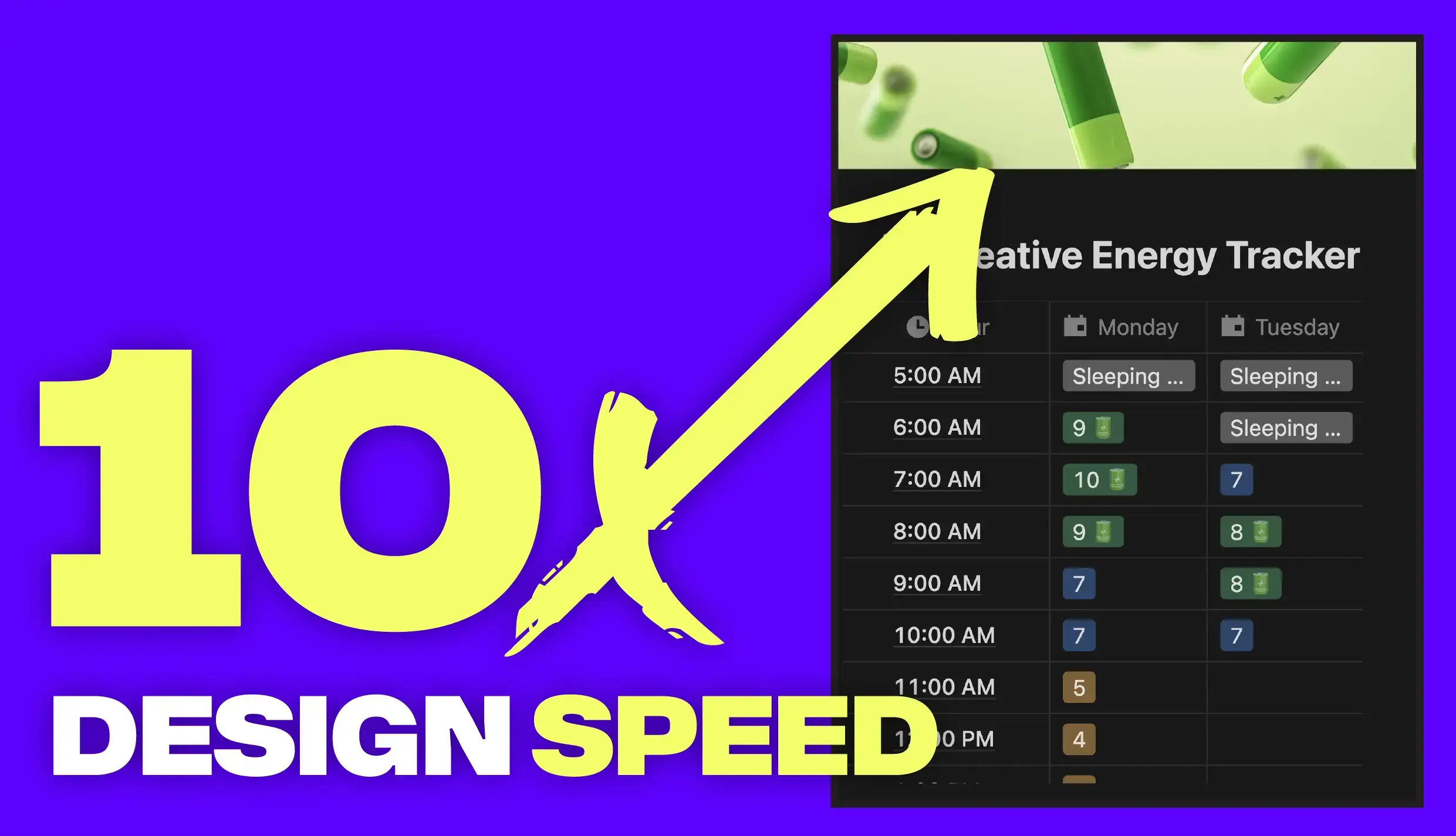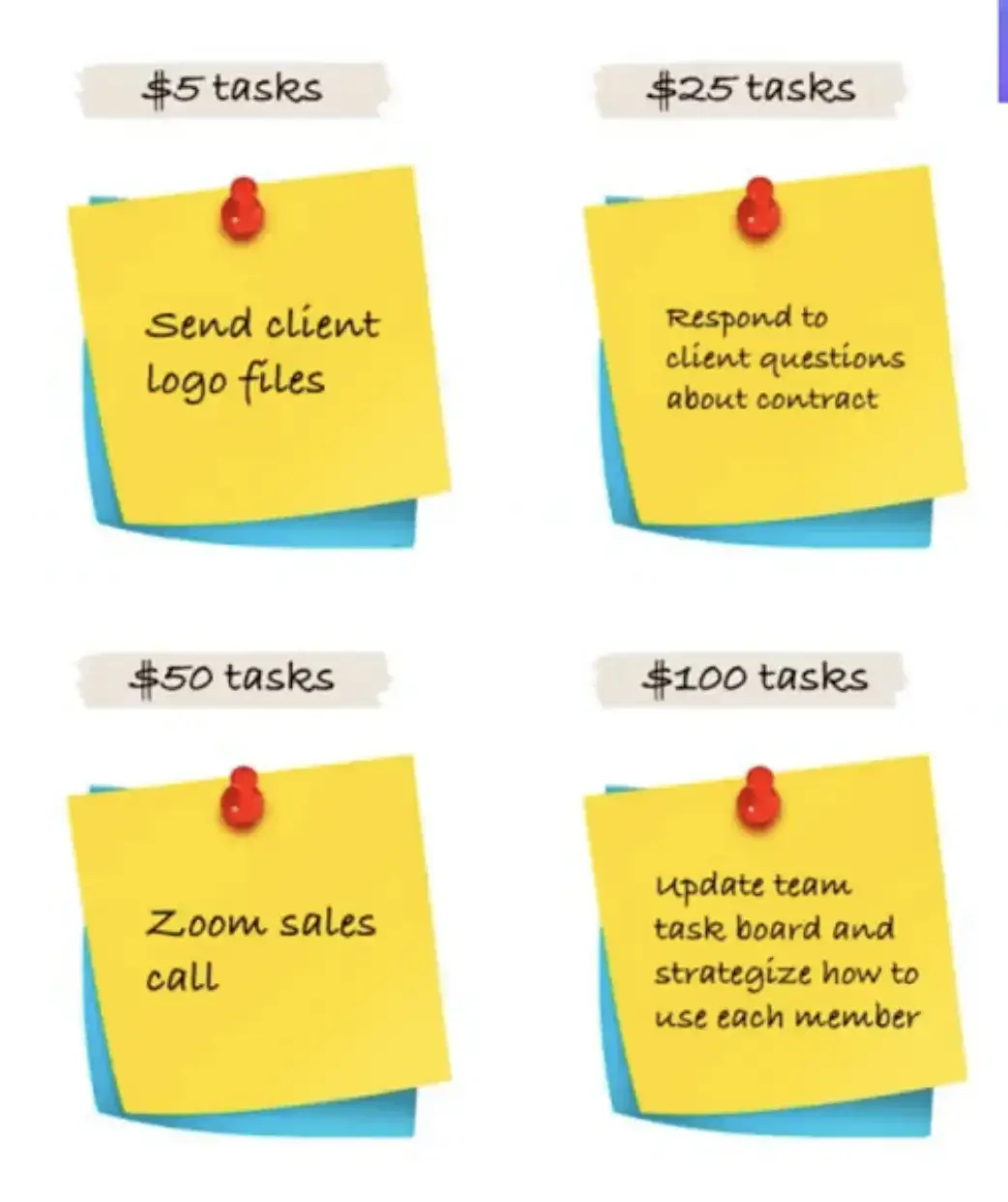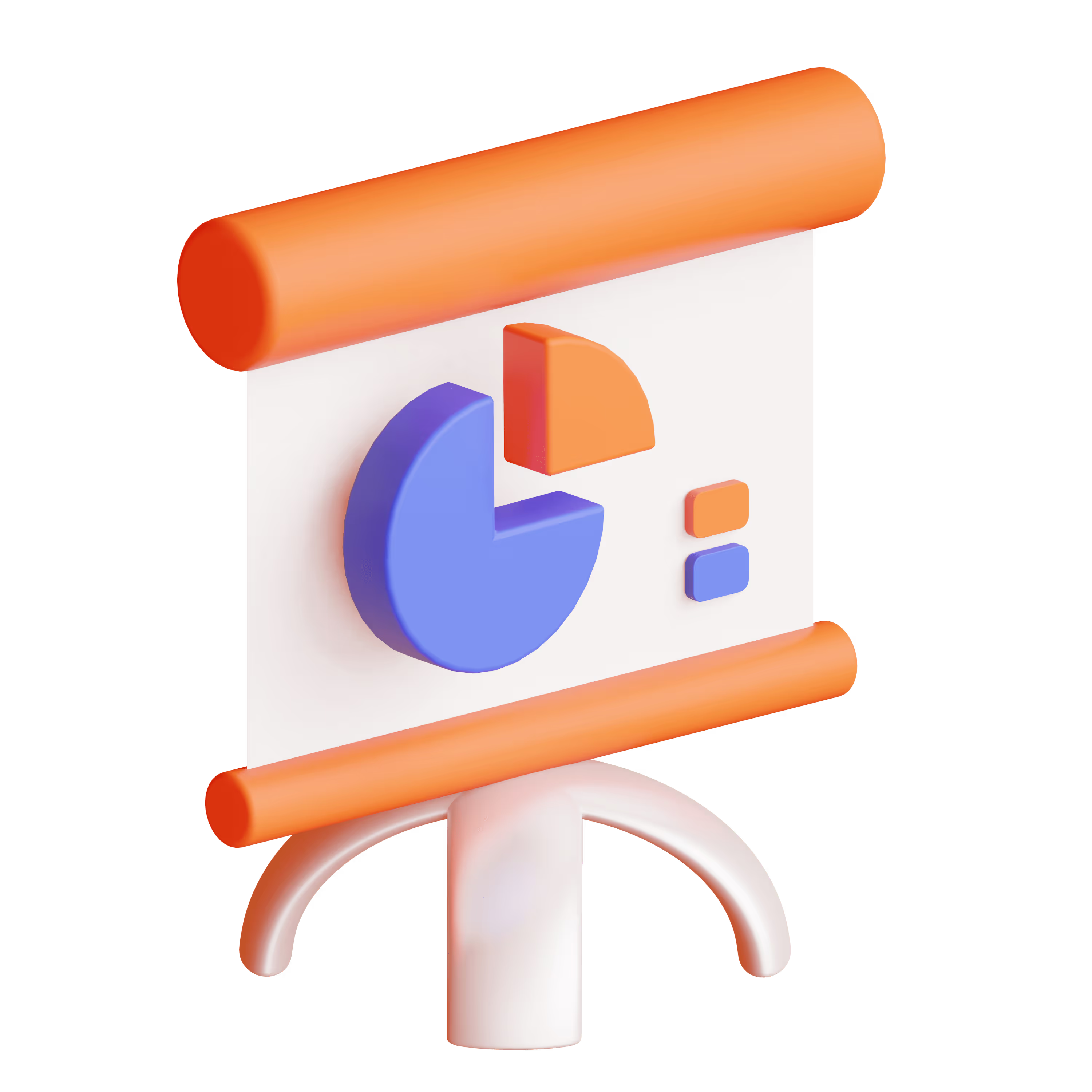We understand that things happen and situations change, but we hope you had a good experience with us!
Unfortunately, once a member leaves you can no longer reapply to join again down the road.
Are you sure you want to leave us?
.svg)
10X Your Creative Efficiency
Learn how to get twice as much done without sacrificing the quality of your work.

The best way to earn more as a designers is to learn how to do your current workload in half the time
- There are only so many hours in the day, and you don’t want to over do it
- Imagine you can work 2 hours a day and spend the rest of the time on high level business functions (training, strategy, hiring, etc.)
- This opens up possibilities and revenue growth
Benefits of efficiency and productivity
- Get more done in less time
- Greater longevity/less burnout
- More free time
- Charge more
- Gain years of progress over the long-term -> this idea can compound on itself. If you do 2x efficiency in one day, over the years, you’ve added back years and years of your time and progress
What we will cover in this training
- Physical efficiency
- Digital efficiency
- Time efficiency
- Creative efficiency
- Outsourcing
Payton’s story of efficiency
- Going through chemotherapy, Payton needed to figure out what he could focus on that would have the biggest impact
- Was able to figure out how to go from 50 hr work weeks to 2 hr weeks, and income only dropped by 30%
Decide what you really want
- Build and empire - if you want to build something extraordinary, you will have to work an at extraordinary level
- Get back your time - travel, spend time with family, game, workout, perform, relax, etc. This is just as honorable
Goal for this training: buy you back 100+ days over the next year
- Buy back 100 days per year
- Over 10 years, this is an extra 3.8 years
- Over the course of a 40 year career, that’s an average of 15.4 years bought back!!
Physical Efficiency
Estimated time saved: 30 days/year
Improve physical performance
- Get good sleep - this can have a huge impact on all parts of your life. Sleep is the most important thing. Make goals to get good sleep.
- Eat well
- Exercise
- Do things that bring endorphins
Workspace and environment
- Clean workspace makes it easy to settle in and be focused. It limits distractions and anxiety
- Face freedom. Facing a wall can limit creativity and bring on feelings of anxiety. Turn your desk to face the door and/or a window.
- Go green. Researches say that adding plants, trees, flowers can replenish our capacity for attention and focus
- Look up. Place your monitor either level with your eyes or slightly above. This will help with your posture and studies show you will be more energized and awake by looking up.
- Big screen. A larger screen can increase functional work space and reduce strain on your eyes. Just make sure you don’t have more than two windows open at a time, as this can decrease productivity.
Some affordable monitor options:
- HP 24mh 23.8-inch 1080p FHD Monitor
- Dell 24 S2421HGF
- NZXT Canvas 32Q Curved
- Samsung 24-inch CF396 Curved LED Monitor
- Can also check Costco, Sam’s Club or Best Buy clearance
- Be active. Use a timer to remind you to stand up and move around often. I also recommend a standing desk.
Digital Efficiency
Automation
- Email (responses, open reminders, etc.)
- Invoicing
- Support requests (FAQ)
- Reporting
- Content
Keyboard shortcuts - Shortcuts.Design
- According to a study by Brainscape, keyboard shortcuts can save you up to 64 hours annually, equalling 8 workdays a year!
- Set customs system shortcuts, examples: Opening your most used apps, ppen a new browser window, play spotify, hide all windows, etc.
Improve your typing speed
- If you increase your typing speed by just 25%, you can save up to 35 minutes per day. That equals an additional 21 days per year!
Time Efficiency
The biggest mistake we make with our time is switching tasks too frequently
Cognitive switching penalty
- “Every time you switch your attention from one subject to another, you incur the Cognitive Switching Penalty. Your brain spends time and energy trashing, loading and reloading contexts.”
- This results in massive amounts of wasted time and energy.
Batch tasks by:
- Type
- Mental/emotional weight
- Social level
- Creativity level
- Location/tools
- Goals
Color code calendar by types of tasks to group them together to reduce the cognitive switching penalty
If you fail to plan, you plan to fail
Guard your time like it is your most valuable asset
- Say “no”
- Work like a general, not a soldier
- Prioritize the growth of your own business over client projects
- Be purposeful and calculated. The growth and health of your business is more important than anything else
- Don’t let design slow your momentum (progress > perfection)
Action Item: Time Management Exercise
- Judge how you spend your time and determine what needs to be outsourced or ignored
- Idea from Codie Sanchez @codiesanchezCT
- Audit your efforts and the dollar amount they get back to you, like the below example:

3 Minute Rule: If you think of something important that causes stress or anxiety and it takes less than 3 minutes, do it now!
- Alleviates stress, pressure, responsibility and creates momentum
Creative Efficiency
Biological Prime Time (BPT)
- When you have the most energy or feel you are most productive in accomplishing your tasks
- Figure out when you BPT is to be the most efficient and work harder during that time
- Most common BPT is 2-4 hours after waking up
- Recommended book: The Productivity Project by Chris Bailey
Why is this important?
- Know when to schedule your most important/critical work
- Use less productive times to do things you enjoy (don’t fight your genetics)
- Optimize your working hours so you can get more done in less time and not feel guilt when taking well-times breaks
Creative Energy Tracker - Download here
- Free Notion template for you to use to track your creative energy
- Audit every hour of your day for a week
- Rank your creative energy on a scale of 1-10
- Helps to find your most creative times to find your highest level creative time to schedule your high-performance tasks and optimize your less important tasks for less creative times
Hiring and Outsourcing
6 Critical Rules for Hiring/Outsourcing
- Hire someone skilled, not affordable. Otherwise you will end up doing it yourself or suffer the consequences of bad work.
- Learn to delegate higher level objectives. Otherwise you will end up being a task manager rather than a leader. Don’t dictate what tasks your employees should be doing task by task, instead dictate their objectives and goals.
- Trust your people and let them fail. No one will ever reach their performance potential if you baby them. But remember if they fail, they are NOT a failure and you must take the fall for them.
- Look to build long-term relationships. Short term equals no loyalty or commitment to quality. It also means repeating onboarding for every new task.
- Pay per project. Don’t penalize people for working for or being efficient. Plus always know your costs beforehand.
- Be clear and predictable. Don’t leave people wondering what you want done. Make your visions and expectations clear. Put it in writing and hold them responsible.
Action Items:
- Fill out the Creative Energy Tracker for one full week
- Read The Productivity Project by Chris Bailey
Questions
Do you think there is value in a physical book vs. a digital copy?
Payton likes to listen to audiobooks on 1.5 speed. Then if he really likes the book, he’ll go buy the physical copy and reread and mark up the book.
Example of a great book: $100M Offers: How To Make Offers So Good People Feel Stupid Saying No by Alex Hormozi
How do you not get caught doing the little tasks?
- You just have to practice saying no, and force yourself to work on higher level tasks and outsource.
Where can we find the resource about outsourcing/hiring?
Payton recommends using Facebook groups for finding good hires, can feel free to use Pait Pro, SEO and Webflow
How can you manage efficient client projects?
- Templatize things
- Prioritize what’s most important
- Set expectations beforehand
- Front-foot holdups with clients
- The best way to be productive can sometimes be to put things off with clients.
- Example, imagine that every day you’re getting new feedback from a client, an this is causing a lot of back and forth. Tell the client they have three days to give all feedback. Then spend one day incorporating all the feedback. Cuts down time and increases efficiency.
Where can you outsource SEO and what are some benefits of per project vs. in-house?
- All of Payton’s in-house teams are working on a per project basis. But you can start out trying both per project and in-house, e.g., start on a per project basis, and then introduce an in house team once you have enough work.
How can I be efficient when I work with team members and employees that aren’t?
- Train them up and pass along your efficiency. Set expectations and hold them to them. Always have things you can do to move your business forward when you’re waiting for those team members.
Design is so abstract, how can you systematize it and do it efficiently?
- Practice pushing your limits! Think of ways to do your design work faster and push yourself constantly to be more efficient in your creativity.


